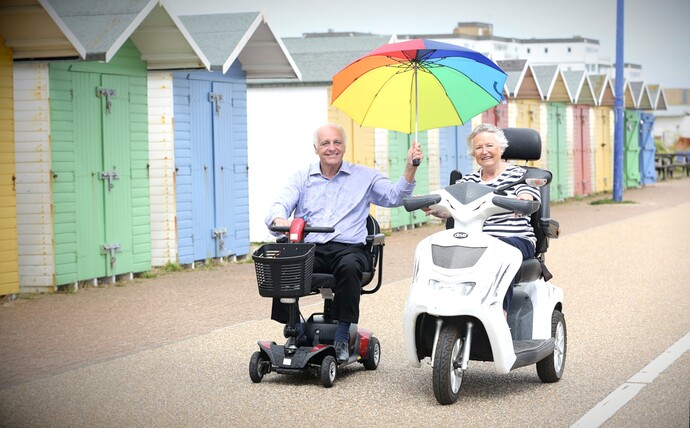Why it’s time we stopped calling crashes “accidents”
June 5, 2025

It’s a word that slips out so easily after someone is killed or seriously injured on the road and the sirens have faded. “A tragic accident.” As if what just happened was an unforeseeable event. The kind of thing we’re powerless to prevent.
But what if that word is doing more harm than we realise?
Across the world of road harm reduction, public health and even emergency medicine, professionals are pushing back against use of the term accident. Because when we call road crashes “accidents”, we do more than describe an event - we imply a verdict. One that lets the rest of us, including decision-makers, off the hook.
Most road collisions aren’t random. They’re the result of behaviours we can anticipate: speeding, distraction, tiredness, poor road design, drink driving, phone use. The list is long. However, what they have in common is that thay are not “acts of God”.
As traffic safety expert Leonard Evans put it bluntly back in 1993, “The word crash indicates in a simple factual way what is observed, while accident seems to suggest… a general explanation of why it occurred without any evidence to support such an explanation.”
“Crash” tells us what happened. “Accident” tells us there’s no point asking why.
But we must ask why if we’re ever going to stop it happening again.
{{cta-cycling}}
Words matter
Language shapes how we think. If we call something an “accident”, we frame it as unforeseeable, inevitable, and therefore unpreventable. And if something’s unpreventable, what’s the point of trying to stop it?
That subtle shift in mindset has real consequences. It undermines efforts to build safer roads, invest in better infrastructure, and challenge the cultural norms that accept injury and death on our streets as collateral damage for simply “getting around”.
This isn’t just semantics - it’s strategy. Because just like in medicine or aviation, effective road safety is about identifying risks and reducing them. And yet, we’re quicker to speak in euphemisms than to name what happened: a crash, with a cause, and a cost.
It’s telling that the medical world has already had this debate - and moved on. In 2001, the British Medical Journal banned the word “accident” from its pages, citing the need for precision and the moral imperative to emphasise preventability. The BMJ argued that “accident” isn’t just inaccurate - it obscures the possibility of prevention.
Aviation, too, has long treated crashes with forensic seriousness. Investigations dig deep, recommendations follow. Pilots, engineers, and air traffic controllers operate within tightly regulated systems. When things go wrong, we don’t shrug - entire fleets of aircraft can be grounded until a redesign of systems.

But where road traffic is concerned, where human error is far more common, we do the opposite. A crash is often seen as a one-off - a lapse, a mistake, a tragedy. Not a symptom of deeper systemic issues: lack of enforcement, underinvestment in active travel, planning decisions that favour speed over safety.
There’s another reason “accident” remains stubbornly popular. It soothes. It suggests no one is to blame. That no bad decisions were made. That what happened could’ve happened to anyone.
But this moral neutrality - this exoneration - is part of the problem. As Evans noted, “accident… gives the sense that it exonerates participants from responsibility.” That’s convenient for those who don’t want to face the difficult questions. But it’s devastating for those left behind.
Critics call this a pedantic quibble. But would we say the same if the outcome were different? If we started calling hospital-acquired infections “accidents”? Or oil spills? Or train derailments?
The truth is, we change language all the time when the stakes are high. And on our roads, the stakes are heartbreakingly high: thousands killed or seriously injured every year.
So what should we say? Crash. Collision. Incident. Anything that doesn’t come pre-loaded with fatalism.
Cycle Rescue is free with ETA bicycle insurance
If you suffer a breakdown (including punctures, or even a flat e-bike battery) while out cycling, our 24-hour Cycle Rescue team is on hand to arrange transport for you and your bicycle to a safe location. The service is included for free with ETA cycle insurance, along with:
• Theft, accidental damage & vandalism
• E-bike battery theft cover
• Cycle Rescue
• No devaluation of your bike over time
• £2m third party PLUS £20,000 personal accident cover
• Shed and garage storage
• Low standard excess of 5% (£50 minimum)

{{cta-ebike}}
The ethical choice
The ETA was established in 1990 as an ethical provider of green, reliable travel services. Over 30 years on, we continue to offer cycle insurance , breakdown cover and mobility scooter insurance while putting concern for the environment at the heart of all we do.
The Good Shopping Guide judges us to be the UK's most ethical provider.
Information correct at time of publication.







